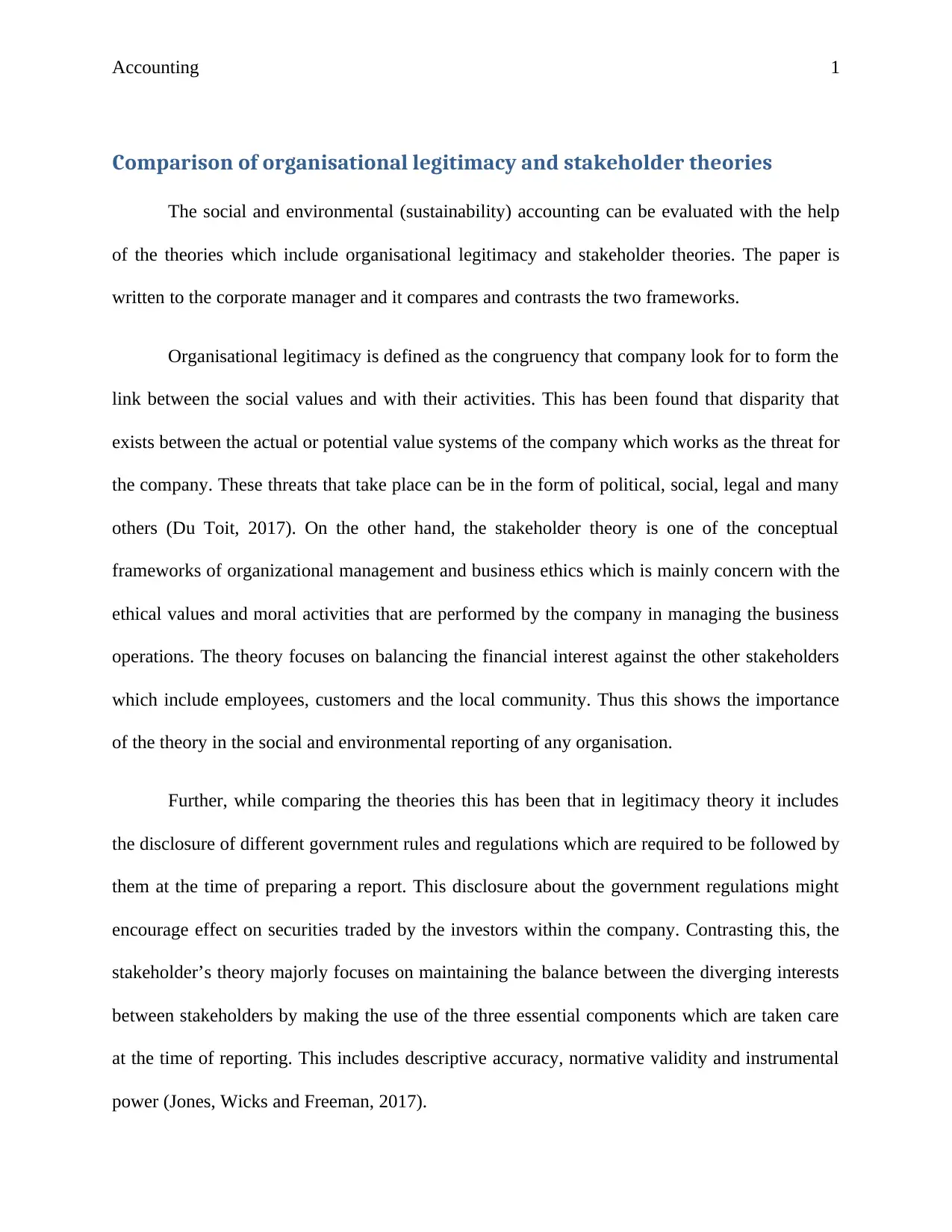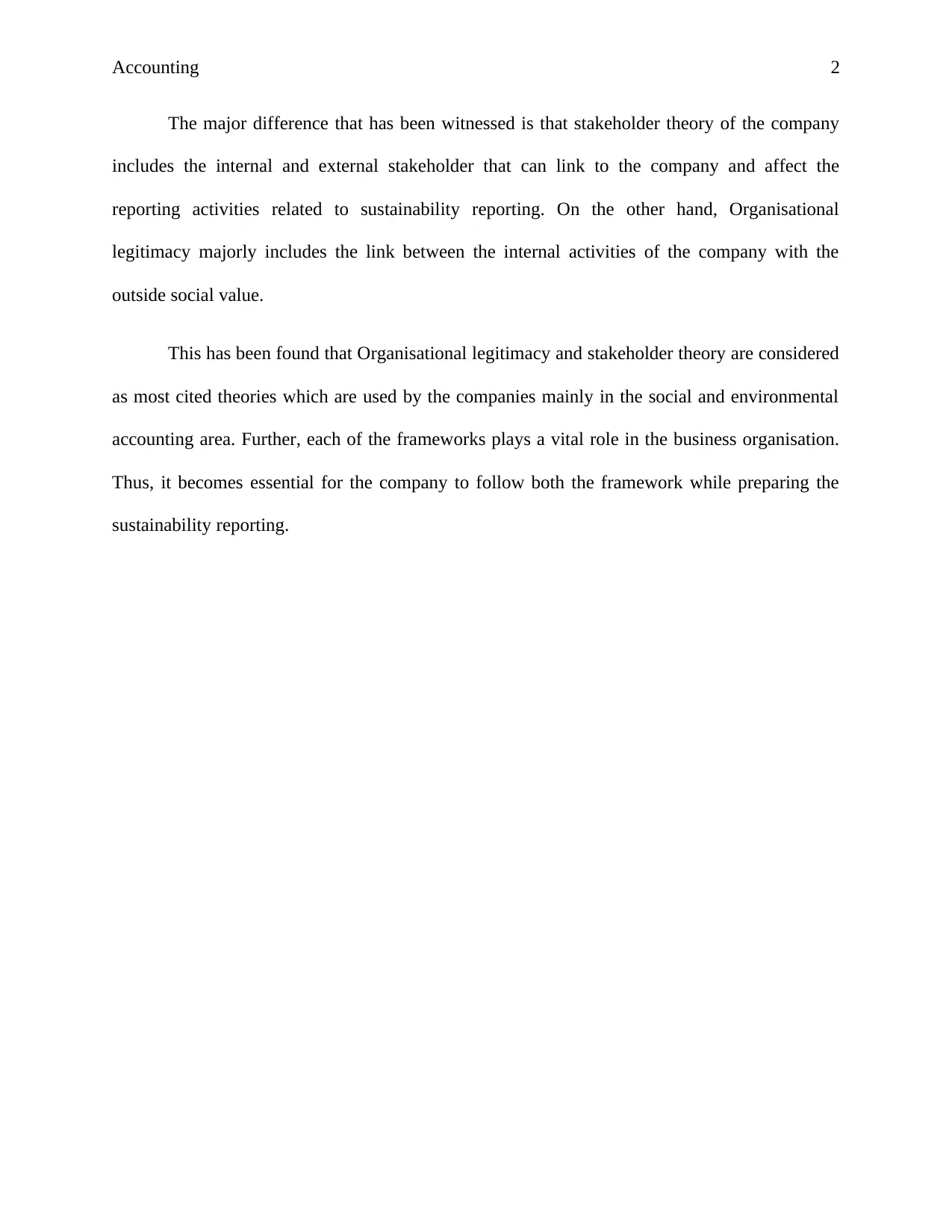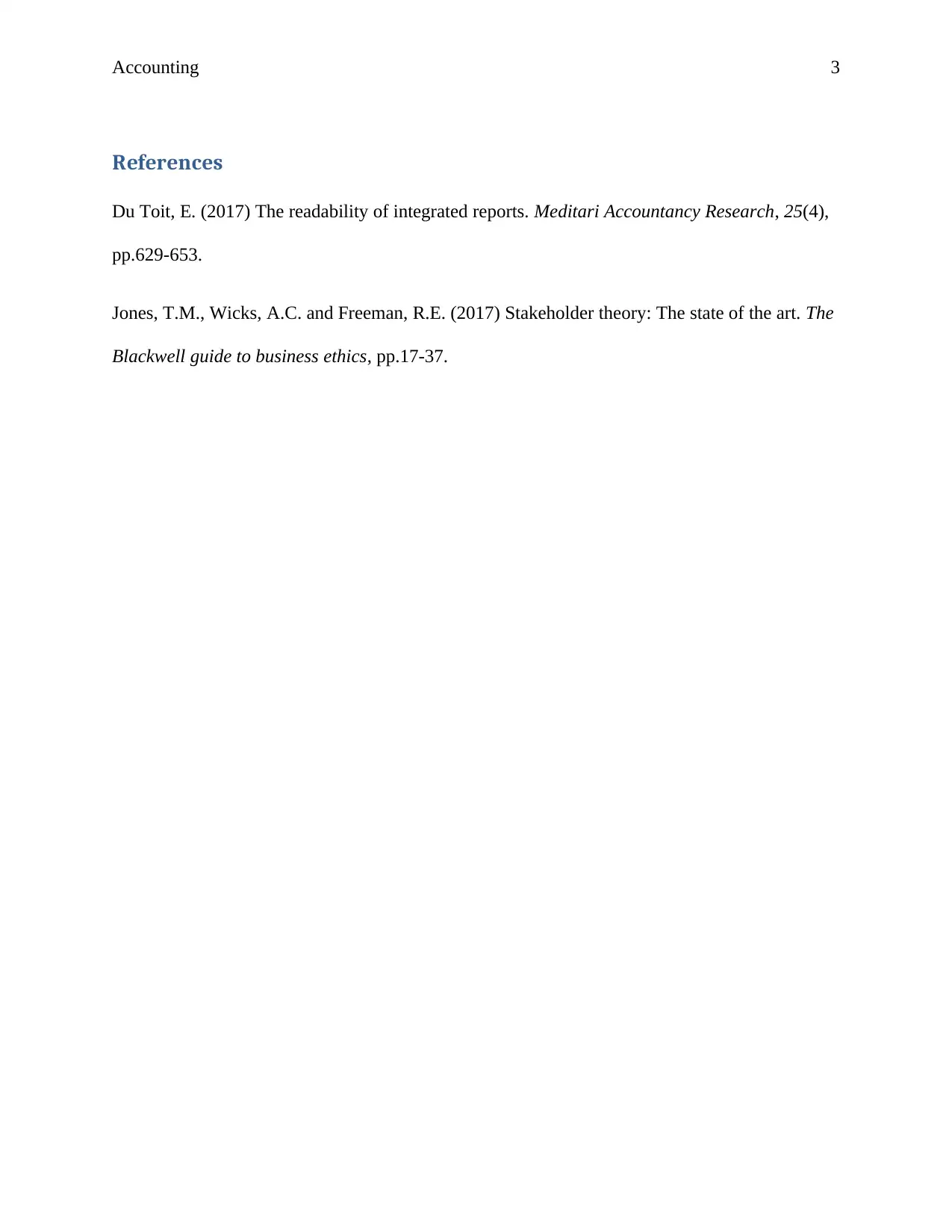Accounting: Organisational Legitimacy vs Stakeholder Theories
VerifiedAdded on 2023/04/25
|4
|517
|366
Essay
AI Summary
This essay compares and contrasts organisational legitimacy and stakeholder theories within the context of social and environmental accounting. Organisational legitimacy focuses on aligning a company's activities with societal values, while stakeholder theory emphasizes balancing the interests of various stakeholders, including employees, customers, and the community. The essay highlights that legitimacy theory involves disclosing government rules and regulations, potentially impacting investor decisions, whereas stakeholder theory balances stakeholder interests using descriptive accuracy, normative validity, and instrumental power. While stakeholder theory considers both internal and external stakeholders, organisational legitimacy primarily links internal activities with external social values. Both theories are crucial in social and environmental accounting, and companies should consider both frameworks when preparing sustainability reports. Access more solved assignments and study resources on Desklib.
1 out of 4











![[object Object]](/_next/static/media/star-bottom.7253800d.svg)